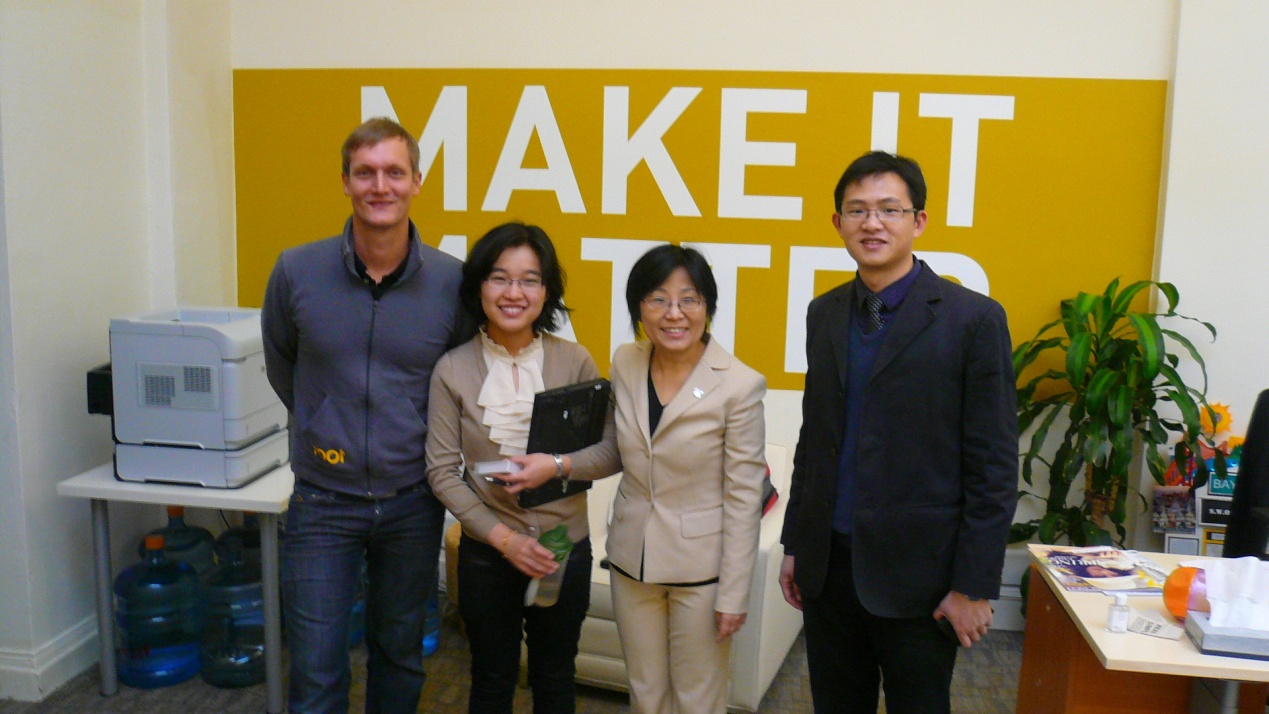
Pro bono in China is being implemented by the Beijing Huizeren Volunteering Development Center. Since Feb. 28, a team of Chinese philanthropic leaders–Robin, founder of Huizeren; Xinfu, project manager; and Charles from Narada Foundation –visited and toured Taproot Foundation to gain greater insight into this nascent marketplace. Here are their final thoughts on the lessons they learned during their visit. And stay tuned for another post and video later this week on the state of pro bono in China!
 The growth of pro bono in China
The growth of pro bono in China
The NGO sector has only recently begun to emerge and grow in China over the past several years. Even though the potential is huge, the challenges are equally tremendous. A lot of NGOs are struggling to find resources to build better organizations. On the other hand, more and more enterprises are interested in promoting volunteerism among their employees. Due to a lack of management capability and experience, most of these volunteers are hands-on, and the satisfaction of employees with their engagements is low. Seeing the needs from both sides, Huizeren designs projects for skilled volunteers while providing capability building for the volunteer managers on the company side.
BSR’s CiYuan initiative connected Huizeren and Taproot Foundation. Taproot’s Service Grant approach is a great way to accomplish the goal of providing capability building for NGOs and promoting volunteering at the same time. With eight years of capability-building experience and a great passion for volunteerism, Huizeren is the top operator of pro bono in China. The learning tour and coaching opportunities will help Huizeren understand and implement pro bono projects more efficiently and professionally.
With the help of BSR, we received funding from HP, which is involved not only financially, but also through the investment of human capital. We also received funds from the Narada Foundation, which is one of the top foundations fostering civil society in China. Narada Foundation also funds more than a hundred NGOs each year in China. Its database of NGOs is going to be a big advantage for the program. Involving different sectors and facilitating cross-sector partnerships are primary goals of CiYuan initiative. It also makes the pro bono value chain we are trying to promote in China more diverse and stable.
 The power of collaboration
The power of collaboration
It is very exciting for the three of us to learn from the Taproot Foundation. All the Roots in the Bay Area opened their arms to welcome us. There seems to be no distance between us, and it feels like we are all united. Through these three weeks of study, we have learned how Service Grants operate, how to conduct outreach to nonprofit organizations, how to choose grantees, how to manage pro bono consultants, and how to monitor and close a project. What a complicated but efficient system! We also took away a brief understanding of Taproot’s powerful maze of an intranet and received tips on how to have an efficient and supportive all-staff meeting. We are eager to share these lessons with our colleagues back in China.
Our first pilot will consist of five projects in two types. Each project will last six months and have a blueprint with defined scope and milestones. We cannot work out as detailed a blueprint as Taproot has now, but we will try to find a balance between enough information and too much reading. We don’t know if we will have luck in finding Account Directors, but will try to have ADs in at least two projects.
Looking ahead
Surely even with all we have learned, we are going to meet with many obstacles. But whenever we remember the great work Taproot is doing here, we will have courage to conquer them. We believe we will prove pro bono can work in China, and this two-year program is just the start of a pro bono movement in China.
To all Roots, thank you very much, and a job well done!
Learn more about Taproot’s work internationally and domestically by checking out our programs page here.


